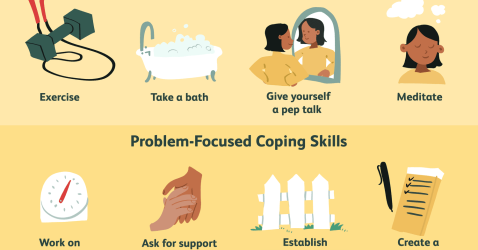Asian-American Mental Health: Bridging Cultural Gaps
In today’s increasingly diverse society, it is crucial to ensure that all individuals have access to the necessary mental health resources and support. This article explores the unique challenges faced by Asian-Americans when it comes to mental health, as well as the importance of bridging cultural gaps in order to provide effective care. By understanding and addressing the specific cultural factors and barriers that may prevent Asian-Americans from seeking help, we can work towards creating a more inclusive and supportive mental health landscape for all.
Understanding Asian-American Mental Health
Asian-Americans face unique challenges when it comes to mental health. High rates of mental health issues are prevalent within this community, and it is essential to understand the cultural factors that impact their mental well-being. By recognizing the barriers to accessing mental health care, promoting mental health awareness, addressing cultural factors, and acknowledging traditional Asian cultural practices, we can work towards bridging the cultural gaps and promoting better mental health outcomes for Asian-Americans.
High Rates of Mental Health Issues
Asian-Americans experience disproportionately high rates of mental health issues compared to the general population. This includes higher rates of depression, anxiety, suicide, and substance abuse. There are several factors contributing to these statistics, including cultural factors, immigration-related stress, and socioeconomic pressures. Understanding these high rates of mental health issues is crucial for developing effective interventions and support systems tailored to the needs of Asian-American communities.
Cultural Factors Impacting Mental Health
Asian-American mental health is influenced by various cultural factors. These factors include collectivism versus individualism, the model minority myth, parental and familial expectations, and immigration and acculturation stress. Collectivism, which emphasizes the well-being of the group over individual needs, can lead to feelings of pressure and an inability to prioritize mental health. The model minority myth perpetuates the expectation of success and resilience, potentially creating pressure to meet unrealistic standards. Parental and familial expectations can also contribute to stress and anxiety, particularly when there is a clash between traditional cultural values and the pressures of Western society. Lastly, the process of immigration and acculturation can bring about stress and identity struggles, further impacting mental health. Understanding these cultural factors is vital in providing culturally sensitive and appropriate mental health support to Asian-Americans.
Barriers to Accessing Mental Health Care
Despite the high rates of mental health issues within the Asian-American community, there are significant barriers to accessing appropriate care. These barriers include the stigma surrounding mental health, the lack of culturally competent providers, language and communication barriers, and a lack of awareness of available resources.
Stigma Surrounding Mental Health
Stigma surrounding mental health remains a significant obstacle in many Asian-American communities. Mental health issues are often viewed as a personal failing or weakness, leading individuals to suffer in silence rather than seeking help. This stigma can prevent individuals from accessing the care they need and can exacerbate their mental health issues. It is crucial to address this stigma through education and advocacy to create an environment where seeking mental health support is seen as a sign of strength rather than weakness.
Lack of Culturally Competent Providers
A lack of culturally competent mental health providers is another barrier for Asian-Americans seeking care. Culturally competent providers have an understanding of the cultural backgrounds and practices of their clients, allowing them to provide more effective and appropriate care. Unfortunately, there is a shortage of such providers, which can limit access to culturally sensitive mental health support for Asian-Americans. Efforts must be made to increase cultural competence among mental health providers through training and education, ensuring that individuals receive the care that aligns with their cultural backgrounds and beliefs.
Language and Communication Barriers
Language and communication barriers pose significant challenges for Asian-Americans accessing mental health care. Limited English proficiency can make it difficult to express emotions and experiences effectively, leading to a lack of understanding between the individual and the provider. Providing linguistically accessible services, such as translation services or bilingual mental health professionals, can help overcome these barriers and ensure that individuals can communicate their needs and concerns accurately.
Lack of Awareness of Available Resources
Many Asian-Americans may not be aware of the mental health resources available to them. This lack of awareness can prevent individuals from seeking support or accessing appropriate care. Improving outreach and awareness of mental health resources within Asian-American communities is crucial. This can be achieved through community partnerships, targeted outreach programs, and culturally tailored messaging that promotes mental health awareness and available resources.
Promoting Mental Health Awareness in Asian-American Communities
To address the barriers to accessing mental health care and improve mental health outcomes for Asian-Americans, it is essential to promote mental health awareness within these communities. Several strategies can be implemented to achieve this goal.
Addressing Stigma through Education and Advocacy
One crucial step in promoting mental health awareness is addressing the stigma surrounding mental health within Asian-American communities. Education and advocacy efforts should focus on debunking myths, raising awareness about mental health issues, and encouraging open conversations around mental well-being. By normalizing discussions about mental health, individuals may feel more comfortable seeking the support they need and challenging the stigma associated with it.
Increasing Cultural Competence among Mental Health Providers
To ensure that Asian-Americans receive culturally appropriate mental health care, it is important to increase cultural competence among mental health providers. This can be achieved through ongoing training and education, which includes learning about various Asian cultures, beliefs, and practices. By developing a better understanding of the unique experiences and challenges faced by Asian-Americans, mental health providers can tailor their approaches and interventions effectively.
Creating Linguistically Accessible Services
Addressing language and communication barriers is crucial to improving mental health care access for Asian-Americans. Mental health services should be linguistically accessible, providing translation services and bilingual professionals to facilitate effective communication. Additionally, written materials and resources should be available in multiple languages to ensure everyone can access essential information about mental health.
Improving Outreach and Awareness of Mental Health Resources
Many Asian-Americans may not be aware of the mental health resources available to them. Community partnerships, outreach programs, and tailored messaging can help raise awareness about available resources and support services. Engaging community organizations, schools, and places of worship can be effective in reaching individuals who may not actively seek out mental health support.
Cultural Factors Affecting Asian-American Mental Health
Various cultural factors impact the mental health of Asian-Americans. It is essential to understand and address these factors to provide effective mental health support and interventions.
Collectivism vs Individualism
Asian cultures often prioritize collectivism, where the well-being of the group takes precedence over individual needs. This emphasis on social harmony and conformity can create pressure to suppress personal emotions and prioritize the group’s needs over individual mental health. Recognizing the cultural value of collectivism while promoting the importance of self-care and individual well-being is crucial in addressing mental health issues within Asian-American communities.
Model Minority Myth
The model minority myth characterizes Asian-Americans as high-achieving, successful, and resilient. While this stereotype may seem positive, it can create significant pressures to meet unrealistic expectations, leading to stress, anxiety, and feelings of inadequacy. Challenging the model minority myth and promoting a more balanced and nuanced understanding of Asian-American experiences is essential to support positive mental health outcomes.
Parental and Familial Expectations
Asian-Americans often face significant pressures from their parents and families to meet certain expectations, such as academic success, career achievements, and filial piety. These expectations can create stress and anxiety, particularly when they clash with individual desires and aspirations. Balancing traditional cultural values with personal goals and well-being is critical in supporting the mental health of Asian-Americans.
Immigration and Acculturation Stress
Immigration and the process of acculturation can lead to unique stressors for Asian-Americans. Adapting to a new culture, language, and societal norms while maintaining connections to one’s cultural roots can be challenging. The experience of navigating multiple cultures can create identity conflicts and feelings of isolation, contributing to mental health issues. Providing support services and resources tailored to the experiences of immigrant Asian-Americans can help address the mental health challenges associated with immigration and acculturation stress.
Traditional Asian Cultural Practices and Their Impact on Mental Health
Traditional Asian cultural practices shape the way individuals perceive and experience mental health. Understanding these practices is crucial in providing culturally sensitive mental health support.
Importance of Saving Face
In many Asian cultures, saving face and maintaining a positive image in public is highly valued. This emphasis on external appearances can lead individuals to hide their mental health struggles, fearing judgment or loss of social standing. Creating a safe and supportive environment that encourages open dialogue, where individuals feel comfortable sharing their experiences without fear of shame, is essential in breaking down barriers to mental health care.
Silent Suffering and Expressing Emotions
Asian cultures often prioritize emotional restraint and believe in the importance of maintaining a calm and composed demeanor. Expressing strong emotions, particularly negative ones, may be seen as a sign of weakness or instability. This cultural practice can hinder individuals from seeking help for their mental health issues or openly discussing their emotions. Promoting emotional expression and providing safe spaces for individuals to share their feelings can help address the issue of silent suffering.
Hierarchy and Power Dynamics
Asian cultures often place a strong emphasis on hierarchical relationships and power dynamics, such as those between parents and children or seniority within a community. These hierarchies can create additional stress and pressure for individuals who may feel obligated to conform to societal expectations or defer to authority figures. Recognizing the impact of these power dynamics and promoting empowerment and autonomy can support the mental well-being of Asian-Americans.
Interdependence and Social Support
Asian cultures tend to prioritize interdependence and strong social support networks. While social support can have positive impacts on mental health, there may also be pressure to conform to societal expectations and norms within these networks. Creating supportive environments that foster authentic connections while allowing for individuality and personal growth is crucial in promoting positive mental health outcomes.
Intersectionality and Mental Health in Asian-American Communities
Intersectionality plays a significant role in shaping mental health experiences within Asian-American communities. Considering various intersecting identities is crucial to better understand and address mental health issues.
Gender and Mental Health
Gender dynamics within Asian-American communities can impact mental health experiences. Cultural expectations and gender roles may lead to different pressures and stressors for men and women, affecting their mental well-being differently. Recognizing the intersectionality of gender and mental health is crucial in providing targeted and effective support.
Generational Differences
Generational differences within Asian-American communities can influence mental health experiences. First-generation individuals may struggle with identity conflicts and the pressures of adapting to a new culture, while subsequent generations may face different challenges related to cultural identity. Acknowledging and addressing these generational differences is essential in providing culturally sensitive mental health care.
Sexual Orientation and Identity
Sexual orientation and identity can significantly impact mental health outcomes for Asian-Americans. LGBTQ+ individuals within Asian-American communities may face unique challenges, including discrimination, family rejection, and cultural stigmatization. Supporting the mental health of LGBTQ+ Asian-Americans requires creating inclusive and affirming spaces and addressing the specific challenges they face.
Socioeconomic Status and Mental Health
Socioeconomic status also intersects with mental health experiences within Asian-American communities. Economic struggles, financial pressures, and limited access to resources may contribute to stress, anxiety, and other mental health issues. Recognizing and addressing the impact of socioeconomic factors is important in providing comprehensive mental health support for Asian-Americans.
Strategies for Bridging Cultural Gaps in Mental Health
To bridge the cultural gaps in mental health care and address the unique needs of Asian-Americans, various strategies can be implemented.
Culturally Tailored Therapy Approaches
Utilizing culturally tailored therapy approaches can help address the specific needs and preferences of Asian-American individuals. This may include integrating cultural practices and beliefs into therapy sessions, such as mindfulness techniques or incorporating aspects of traditional healing practices. Tailoring mental health interventions to align with the cultural backgrounds of Asian-Americans can improve treatment outcomes and ensure the relevance and effectiveness of care.
Supportive Community Programs
Developing supportive community programs that promote mental health and well-being is crucial. Community engagement activities, support groups, and workshops can provide individuals with a sense of belonging and support. These programs can foster a sense of community, reduce stigma, and provide a safe space for individuals to share their experiences and seek support.
Engaging Faith Leaders and Places of Worship
Faith plays a significant role in the lives of many Asian-Americans. Engaging faith leaders and places of worship can be an effective way to promote mental health awareness and access to supportive resources. Collaboration between mental health providers and religious institutions can help address the cultural and spiritual dimensions of mental well-being within Asian-American communities.
Utilizing Technology and Telehealth
Technological advancements and telehealth can bridge geographic and cultural barriers in accessing mental health care. Offering online therapy services and telehealth options can increase accessibility, particularly for individuals who may face language or transportation barriers. Utilizing technology also allows for the creation of culturally sensitive resources and virtual support networks for Asian-Americans.
Challenges and Solutions in Asian-American Mental Health Research
Research on Asian-American mental health faces several challenges that must be addressed to improve the evidence base and inform effective interventions.
Lack of Data and Research Representation
Asian-Americans are often underrepresented in mental health research, leading to a limited understanding of their experiences and needs. This lack of representation hinders the development of targeted interventions and culturally appropriate support. Addressing this challenge requires increased research funding, collaboration with diverse Asian-American communities, and a focus on culturally sensitive research practices.
Cultural Validity of Assessment Tools
Assessment tools used in mental health research may not always align with the cultural backgrounds and beliefs of Asian-Americans. Cultural validity of assessment tools is crucial to ensure the accuracy and relevance of obtained data. Collaborative efforts involving Asian-American communities, researchers, and mental health professionals can help develop and validate assessment tools that are culturally appropriate and sensitive.
Barriers to Participant Recruitment
Recruiting Asian-American participants for mental health research can be challenging, often due to language barriers, cultural reservations, or mistrust of research institutions. Researchers need to actively address these barriers by building trust, establishing relationships, and working with community leaders to ensure representative and diverse participation in research studies.
Ethical Considerations and Informed Consent
Ethical considerations and informed consent are vital in mental health research involving Asian-American communities. Researchers must prioritize cultural sensitivity and respect for cultural values, ensuring that individuals fully understand the purpose, risks, and benefits of participating in research. Collaborative and transparent approaches that involve community members in the research process can help address these ethical considerations.
Case Studies and Success Stories in Asian-American Mental Health
Highlighting case studies and success stories can provide valuable insights into mental health interventions that have been effective within Asian-American communities.
Community-Based Mental Health Programs
Community-based mental health programs have shown promise in addressing the unique needs of Asian-Americans. For example, programs that provide culturally sensitive group therapy, support groups, and community engagement events have facilitated positive mental health outcomes. These programs foster a sense of belonging and create safe spaces for individuals to seek support and share their experiences.
Collaborative Care Models
Collaborative care models, which involve partnerships between mental health providers, primary care physicians, and community organizations, have been successful in improving mental health outcomes for Asian-Americans. These models integrate mental health care into primary care settings, making it more accessible and reducing stigma. By working together across disciplines, healthcare professionals can better address the cultural and contextual factors impacting the mental health of Asian-Americans.
Advocacy and Policy Initiatives
Advocacy and policy initiatives have played a crucial role in addressing Asian-American mental health disparities. Organizations and advocates have worked to raise awareness, secure funding for mental health programs, and promote policy changes to improve access to culturally appropriate care. These efforts have helped shift the narrative surrounding mental health and promote positive change within Asian-American communities.
Personal Narratives and Voices of Resilience
Sharing personal narratives and highlighting the voices of resilience within Asian-American communities can inspire and empower individuals. Personal stories can help reduce stigma, provide hope, and encourage those facing mental health challenges to seek help. Platforms that amplify these narratives, such as online communities and storytelling initiatives, play a vital role in fostering connection and resilience.
Conclusion
Understanding and addressing the cultural gaps in Asian-American mental health is crucial for promoting positive mental health outcomes. By recognizing the barriers to accessing care, promoting mental health awareness, addressing cultural factors, and acknowledging traditional Asian cultural practices, comprehensive support can be provided to Asian-Americans. Moving towards a holistic and inclusive approach, fostering resilience, and empowering Asian-American communities will help bridge the cultural gaps and promote mental well-being for all.

















